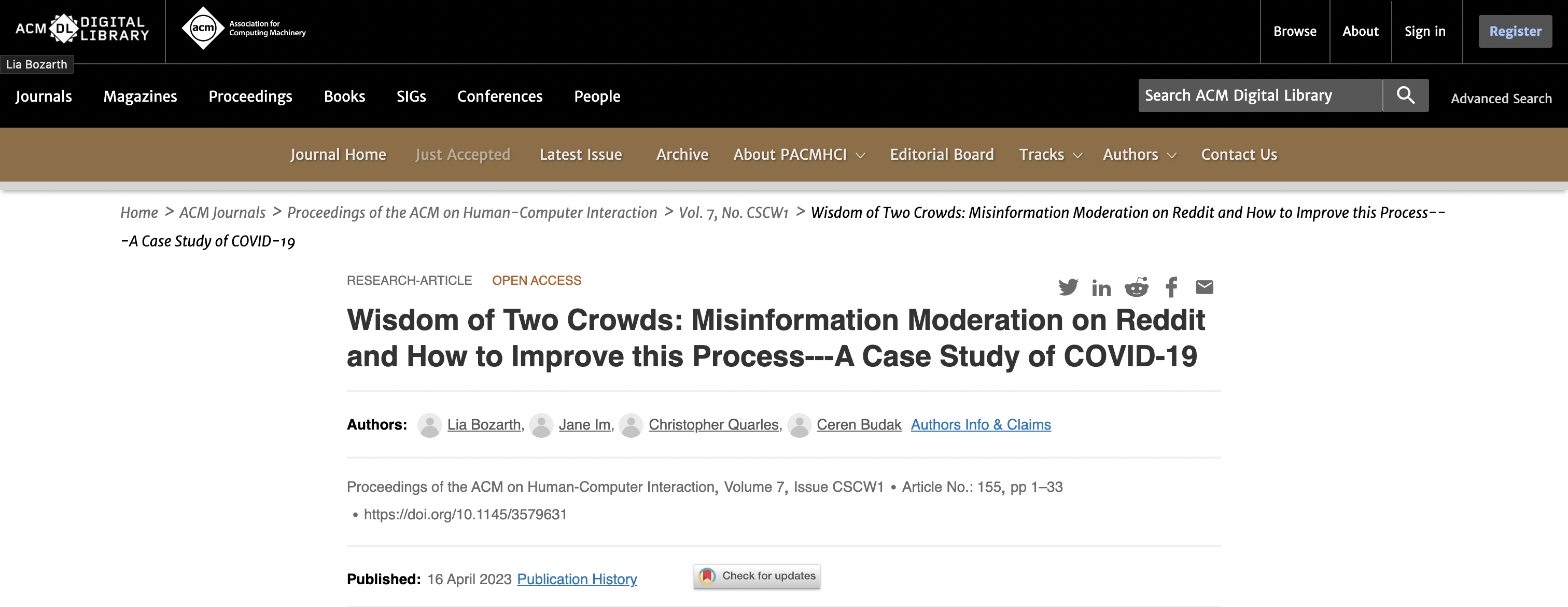Wisdom of Two Crowds: Misinformation Moderation on Reddit and How to Improve this Process---A Case Study of COVID-19

Past work has explored various ways for online platforms to leverage crowd wisdom for misinformation detection and moderation. Yet, platforms often relegate governance to their communities, and limited research has been done from the perspective of these communities and their moderators. How is misinformation currently moderated in online communities that are heavily self-governed? What role does the crowd play in this process, and how can this process be improved? In this study, we answer these questions through semi-structured interviews with Reddit moderators. We focus on a case study of COVID-19 misinformation. First, our analysis identifies a general moderation workflow model which encompasses various processes adopted by participants for handling COVID-19 misinformation. Further, we show that the moderation workflow revolves around three elements: content facticity, user intent, and perceived harm. Next, our interviews also reveal that Reddit moderators rely on two types of crowd wisdom for misinformation detection. Almost all participants are heavily reliant on reports from crowds of ordinary users to identify potential misinformation. A second crowd--participants' own moderation teams and expert moderators of other communities--provide support when participants encounter difficult, ambiguous cases. Finally, we use design probes to better understand how different types of crowd signals---from ordinary users and moderators---readily available on Reddit can assist moderators with identifying misinformation. We observe that nearly half of all participants preferred these cues over labels from expert fact-checkers because these cues can help them discern user intent. Additionally, a quarter of the participants distrust professional fact-checkers, raising important concerns about misinformation moderation.
Proceedings of the ACM on Human-Computer Interaction, Volume 7, Issue CSCW1, Article No.: 155, pp. 1–33
Access the paper here: https://doi.org/10.1145/3579631
— Lia Bozarth, Jane Im, Christopher Quarles, Ceren Budak